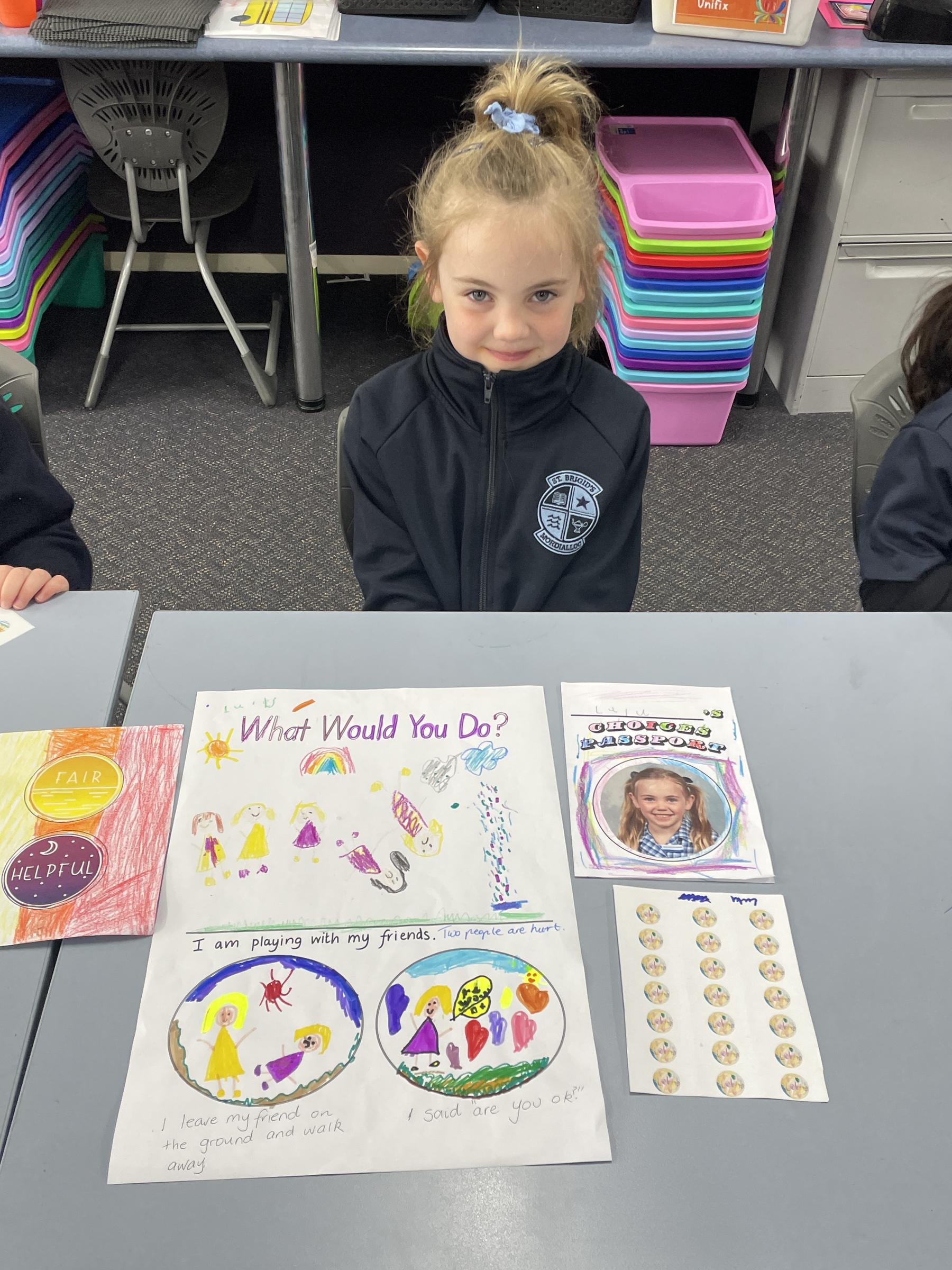Curriculum News

Our Curriculum Overviews for the Term
English
Reading, Viewing and Writing
During Term 3, we concluded the Jolly Phonics program, so for the rest of the year we will be consolidating the sounds learnt, as well as exploring new ones through our SMART Foundation sentence of the week.
Our focus will continue to be on blending and segmenting these, in order to read and spell words. We will be exploring comprehension strategies, such as making connections between themselves and text and sequencing events within texts. The students will also be encouraged to recognise their M100W within texts read and viewed in class and to spell them in their writing.
We will continue to use our everyday life experiences to facilitate our writing program and will be focusing on reading and writing Informative texts. They will continue to practise their letter formation, both within formal handwriting lessons as well as when writing in their dotted third books. It is important that we remember when a child is learning to write the focus is on them hearing sounds in the words they are writing and having a go at representing those sounds with letters. The focus is not on whether these words are spelt 100% correctly but on building confidence in themselves as a writer.
Writing is a very complex process for children with many steps involved, so it is vital that we continue to build up their understanding of this process through experimentation. Our major focus will be on capital letters, full stops, spaces between words, sounding out and writing sight words.
Speaking and Listening
As you are aware Oral Language underpins many parts of Literacy and the students will continue to participate in weekly activities that encourage their use of language and vocabulary. These may include activities like “Reader’s Theatres (small plays), or I Spy (which require the students to describe items - this increases their vocabulary). You may want to play games like I Spy or Guess Who at home with your child to help facilitate this. Our Magic Box and Take Home Toy, Pig the Pug, will also continue this term.
Mathematics
Number and Algebra -For the first three weeks of Term Four the students will be formally exploring the concepts of Place Value - this means the value of each digit in it’s location within the number. For example the 3 in 35 means 30. We will be using concrete materials and games to explore this concept. The students will also continue to practise counting forwards and backwards from random numbers and identify numbers before, after, 1 more, 1 less and 10 more, 10 less.
Through the term we will begin to explore the concepts of small doubles through our Mental Addition and Subtraction program. We will also begin to explore the concept of Division through equally sharing, and revising counting on and counting back when completing Addition and Subtraction problems. The students will also explore 2D shapes some more and be introduced to the concept of Capacity.
Inquiry/Religion
During our Term 4 Inquiry unit, “The World Around Me!”, the students will be focusing on the concept of weather and seasons. They will understand that observable changes occur in the sky and landscape and that daily and seasonal changes affect everyday life. They will be matching the seasons to months of the year, as well as clothing they wear and activities that they participate in during these seasons.
In Religion, we will begin by exploring the different images of God that we see in scripture, such as God as a creator and God as a shepherd. We will end the term looking at Advent with a specific focus on the Jesse Tree, where we will explore the key members of Jesus’ Family. This is in preparation for the birth of Jesus.
Genius Hour
During Term 4, students will continue to explore Physical Science and the concept of forces (push and pull) through a range of hands-on experiments during Genius Hour.
Wellbeing
Our Wellbeing focus for Term 4 is Problem Solving. We will continue to develop resilience and communication skills by participating in challenging tasks that require students to think outside the box and work with partners or teams to find creative solutions, for example building the tallest tower they can with playdoh and spaghetti. As well as using role play scenarios to develop skills for problems students may face in their everyday lives.
